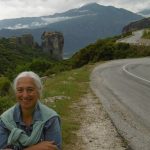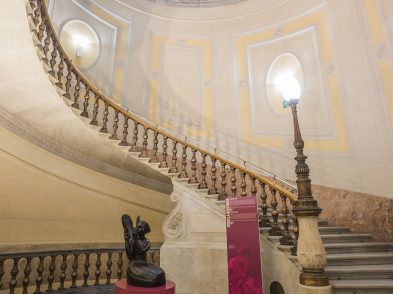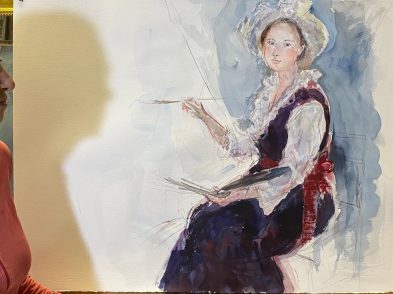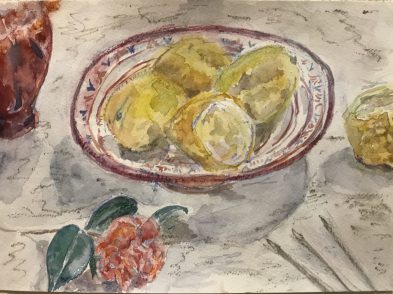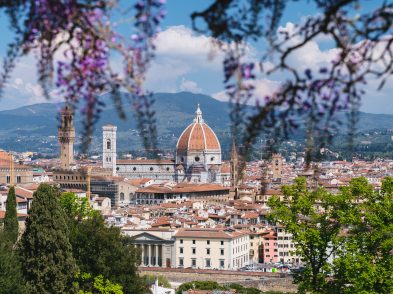The Ballet of the Nations, Vernon Lee’s pacifist dance drama written in London in 1915 during World War I when she was unable to return to her home, Villa Il Palmerino in Florence, has never been performed live before. Now there will be two public shows in the idyllic grounds of Lee’s former residence.
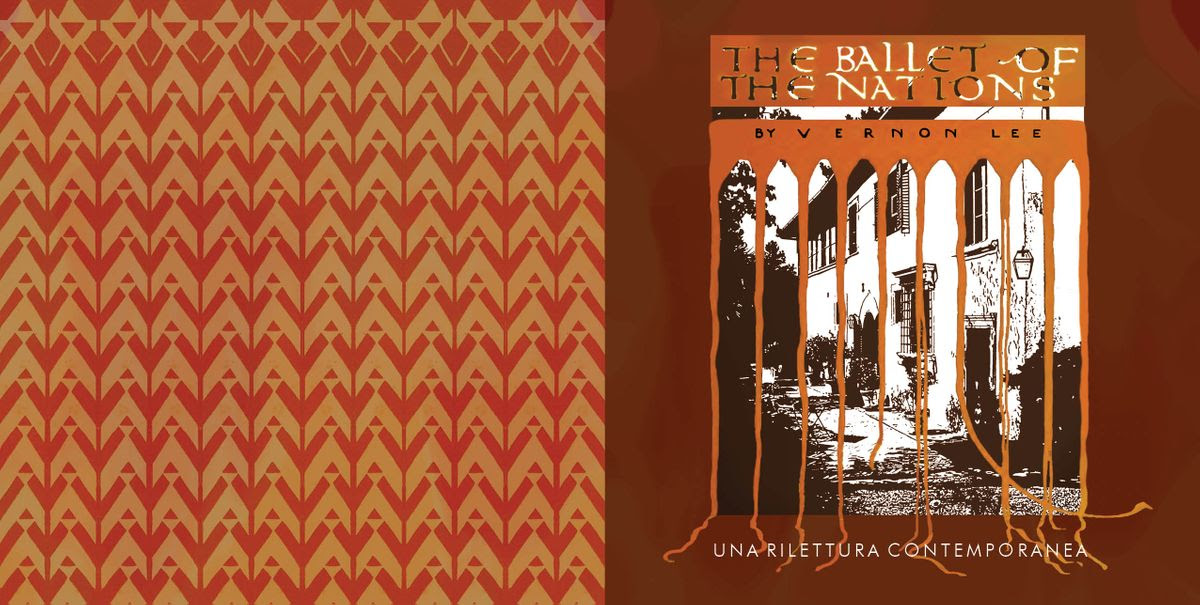
A contemporary rereading of “The Ballet of the Nations” by Vernon Lee
The climate of opinion in wartime England was such that Lee could only read sections privately to friends. But now, over 100 years later, its message seems just as urgent and relevant for us today, a wake-up call against the waste of war and what lies behind it: the suspicion, conflict and divisiveness that seems to be spreading across Europe and elsewhere. Federica Parretti, director of the Il Palmerino cultural association, tells me that her copy of the play was lying in a drawer for 10 years as she waited to find the right person to direct it. A chance conversation with an unknown guest staying at the villa led to the upcoming production.
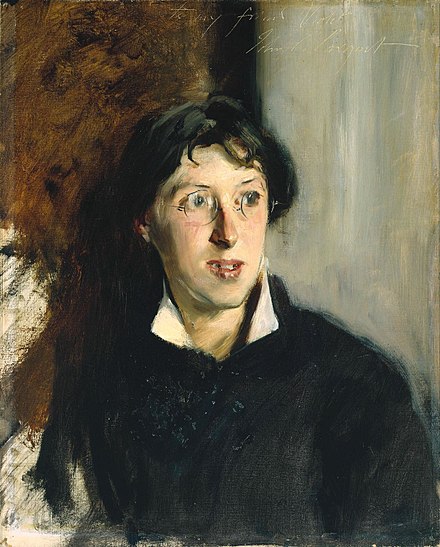
Portrait of Violet Paget (Vernon Lee’s birth name) by John Singer Sargent
That guest turned out to be Greek theatre and film actress Angeliki Papoulia (Dogtooth, The Lobster), who has worked with the Oscar-nominated director Yorgos Lanthimos (The Favourite), and has arrived in Florence especially from Athens to direct the production, working with Parretti, herself a dancer and choreographer, together with Italian-American dancer Elisa Barucchieri and an international cast of actors, dancers, aerial acrobats and enthusiastic local volunteers of all ages.
Villa Il Palmerino is accustomed to welcoming artists, writers and academics from all over the world. Papoulia came to stay for a few days and was captivated by the spirit of the place. Not just because of its beauty, she says, but through a mysterious quality where the boundaries are blurred between reality and fiction, life and art. The audience of The Ballet of the Nations will have a chance to experience this for themselves as they follow the cast in this outdoor production, which will use the walls of the villa and the grounds as its stage set.
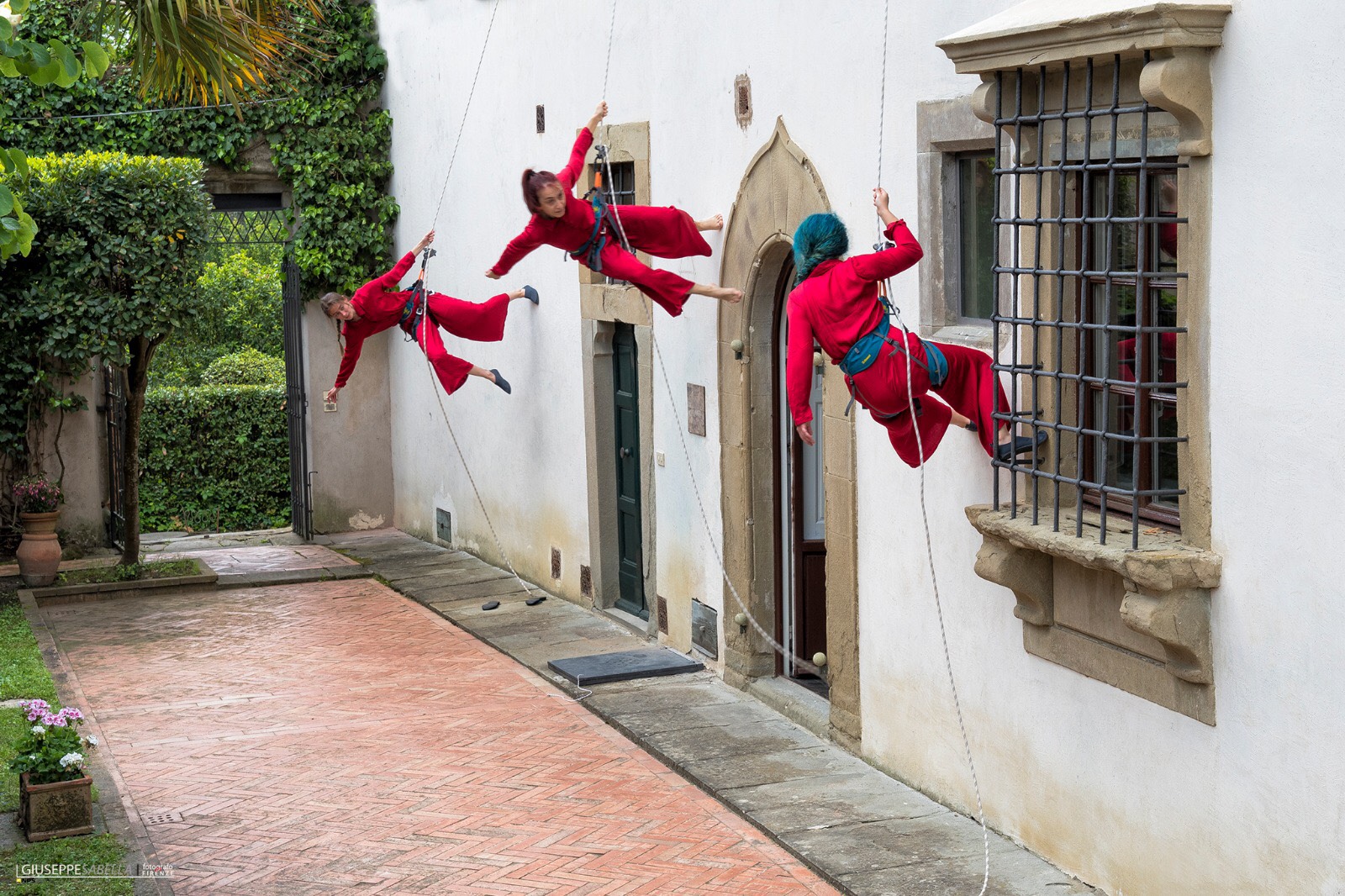
Resextensa dance company at Villa Il Palmerino
Included in the Estate Fiorentina line up, the shows coincide with the conference for Vernon Lee scholars to be held at The British Institute of Florence, in collaboration with Oxford and Surrey Universities and other overseas academic institutions. There is a linked one-day conference and exhibition open to the public beginning May 29 at the Accademia delle Arti del Disegno, involving its Italian scholars and president Cristina Acidini, previously superintendent for Florence’s museums, who is also on the production’s advisory committee, as is Giovanna Giusti, former director for 19th- and 20th-century art at the Uffizi. Linda Falcone, director of Advancing Women Artists (AWA), a long-time collaborator with the Associazione, is also a supporter.
There has been a resurgence of interest in Vernon Lee in recent years, both as a writer and a woman of independent mind and character, described as a “proto-feminist”. Hers is a voice from the past that has a pressing message for us today. Lee continues to influence the spirit of the place. Her intelligence impressed fellow writers, from Henry James to Edith Wharton and Aldous Huxley, and her home at Villa Il Palmerino, where she lived from 1889 until her death in 1935, was a centre for the city’s intellectual and cultural life. Following Lee’s example, the present owners continue the tradition through the cultural association, which is open to all, with activities including exhibitions, lectures and concerts. My own introduction came in April 2010 with the presentation at the villa of Invisible Women: Forgotten Artists of Florence (published by The Florentine Press) written by the late Jane Fortune, founder of AWA, and Linda Falcone. Since then, the involvement with AWA has increased, covering collaborative exhibitions on women artists, talks, book presentations and fundraising projects.
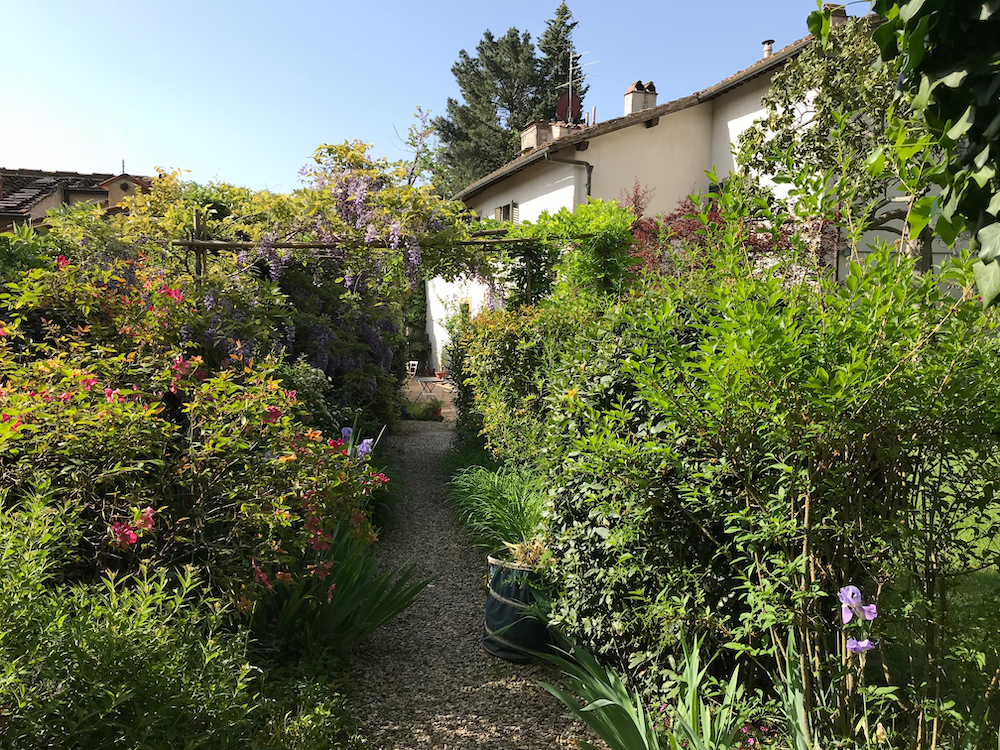
Villa Il Palmerino
An unlikely link with the spirit of Vernon Lee was the invitation to participate in the Goatmilk festival of Bela Rechka, a village in the Bulgarian mountains in 2011. The previous year, the association had invited photographers and journalists from Bulgaria to come to Florence to hold an exhibition, film screening and series of lectures, titled Traumas and Miracles, drawing attention to a crisis in Balkan villages, whereby working women (mothers, wives and daughters) were leaving the village to work as carers in Tuscany, looking after other people’s families. A group representing the association went to Bela Rechka to participate in an arts festival, which once a year brought to life a village where only goats and the elderly remained. An “Abandoned House” was given to us for our project, with plants climbing through its shattered windows, and we mounted an installation accompanied by poetry readings in English, Italian and Greek. We saw how necessary culture can be to the life of a place as nonagenarians sat attentively in the village hall for film screenings well after midnight and a speaker introduced a controversial film with the words: “Art provides a safe space to communicate difficult issues.”

